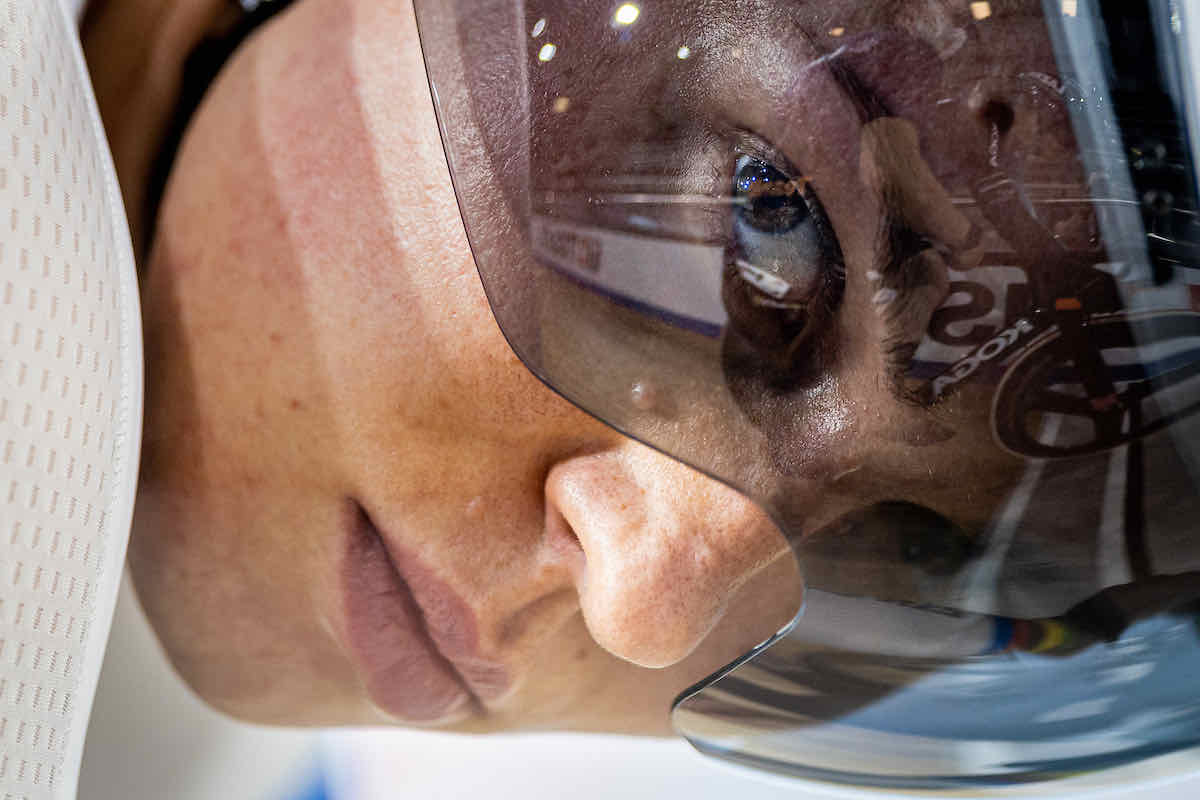Emma Hinze has become the latest top-class sprinter to call out the startlingly low level of prize money on offer in track cycling, even at the sport’s highest levels.
Writing in the German edition of Sports Illustrated, the eight-time world champion revealed just how much she had won for taking gold in team sprint at last year’s UEC European Championships: just €287.03.
‘When you hear of professional athletes, you often think of luxury, wealth and astronomical salaries,’ she writes. ‘Sure, there are disciplines in which the protagonists earn a lot. The public interest and the corresponding market for sports like football and tennis are huge. So there are good reasons why such sums are paid.
‘But I want to draw attention to the reality of professional sport. Salaries in the millions are definitely the exception. Being able to make a living from your sport alone is wishful thinking for many.’
Hinze has the status of a ‘sports soldier’, within the sports programme of the German Defence Ministry. She also receives support from other regional and national funds.
‘A fair reward for success is rare, at least in our sport,’ she continues. ‘I recently received my prize money for our gold medal in the team sprint at the 2024 European Championships. It was 287.03 euros. For a title that you’ve been working towards for years. That is not what fair recognition of performance looks like.
‘For a long time I simply accepted this situation. But now I want to draw attention to these shortcomings. The financial challenges are not only a problem for active athletes, but also a bad signal for future generations.’
Last year, Nick Wammes expressed similar sentiments, observing that ‘most athletes competing for Canada at the international level are broke. It’s a very common misconception that all these athletes are very well taken care of. I’m here to say that’s simply not the case.’
Hinze closes her column with a call for more ‘dual career’ opportunities combining work and sport. But of course, another solution would be a transformed economic model for the sport, such as that proposed by DerbyWheel.
Writing on LinkedIn this week, DerbyWheel CEO James Pope again pointed to the potential of betting revenue. ‘This is something Olympic and minority sports – especially track cycling – need to embrace.
‘Betting is often treated as taboo, but the reality is that it’s an integral part of sport. If managed correctly and responsibly, it can drive engagement, boost visibility, and create sustainable revenue. Rather than resisting it, sport stakeholders should take the lead in shaping how it’s implemented.’
